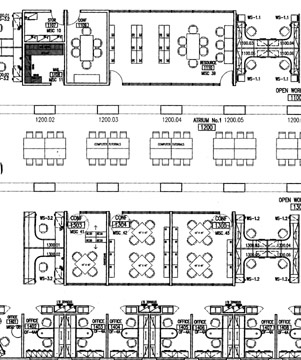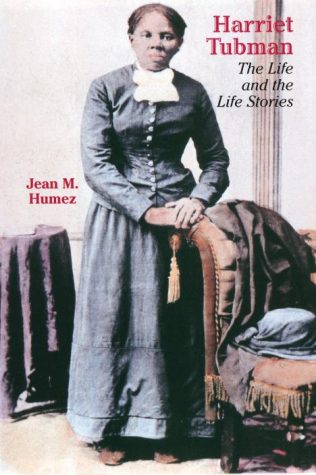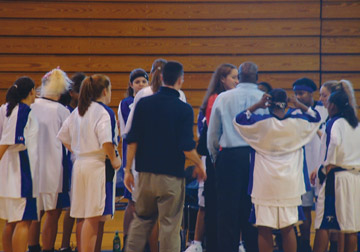Campus Center Concerns: No Doors, Little Privacy

October 23, 2003
As many prepare to move into the new Campus Center over the next several months, some students and staff are voicing concerns about the issue of privacy and security in the building, since many offices won’t have doors.
The lack of doors was meant to save money in the budget, as well as promote a sense of community. An estimate of how much money was saved could not be obtained at press time.
Staffers interviewed were reluctant to talk, citing a climate of fear and low morale generated by ongoing layoffs, budget cuts, and unfunded union contracts. All felt if they spoke up, their departments would be targeted. “People are afraid,” said one person.
Many staff, who deal day-to-day with students, stated that the “issue was confidentiality.”
“It’s an important issue for the students,” said one. “They’re the ones who close the doors.”
Another said their primary concern wasn’t so much the doors, but that they felt that instead of the building being built to meet the needs of the people working there, students and staff are being made to fit the needs of the building. “It’s been adapt this way, or too bad,” they said, complaining that workspaces couldn’t be set up like they wanted them to be. “We’re not allowed to move a chair, we’re not allowed to move a desk, we’re not allowed to move whatsoever.”
Some staffers feel that their opinions were taken, but not considered. “It’s become clear as we get closer to the opening of the building that we were being hoodwinked, because nobody seemed to be paying attention,” said one. “Everybody should be feeling good about the brand new space, but there’s so much swirl, and people feel frustrated.”
Another said the building was “absolutely beautiful,” and that the “students are going to be very happy there,” but expressed the same concerns as the others, noting that they aren’t listened to. “It’s up to the students. [The administration] listens to the students.”
Other staffers, who did go on the record, took a more conciliatory tone.
“It’s going to take some getting used to,” said Joyce Morgan, director of Student Life. “I don’t know how it’s going to play out. I need to see it before I decide if I’m unhappy.”
Lisa Lavely, associate registrar, didn’t think the lack of doors was going to be a concern. “There is a place to go, if necessary,” she said, pointing out the conference rooms.
Reaction to the no doors policy has been mixed among the students who will be working and spending the most of time there.
Calling it the “worst idea the university’s ever had,” Nancy Derby added, “Obviously the committee in charge hasn’t had any experience or knowledge in working with centers. Some centers exist for social reasons and others for doing work.” Derby, who serves as co-editor of The Watermark, UMass Boston’s literary magazine, brought up the issue of theft. Several years ago, submissions were stolen from the magazine’s Wheatley Hall office.
Camphung Luong, coordinator of the Asian Center, sees the good and the bad. The good is that there will be a sense of community, she said. The bad is the privacy issues. “There are things that have to be discussed behind closed doors,” she said.
The Student Veterans Center also expressed concern about privacy, since students come to them for advice and help in personal situations. Said Center Coordinator Louis Colon, “We need that privacy.”
Maria Moreno of Casa Latina took the other view, asking, “What do we need privacy for? We are all a family.” Echoing Casa Latina’s motto, she said, “Mi casa es su casa.”
Recently appointed Vice Chancellor of Student Affairs J. Keith Motley stated via e-mail that he was looking forward to moving into the new building, saying that its potential attracted him to UMass Boston.
“After taking a tour, I have thought about how I plan to approach doing business in the office and will take advantage of the many private spaces within the building. My approach may not work for everyone because I tend to be out of the office conducting business in many places throughout the campus because that is the nature of my job. Others may not have that luxury,” he said. “This is an opportunity for the person/s responsible for the building plan to listen to the concerns of the students and others who will use the building so that we can move forward as a community.”
Anne C. Devaney, who came in as director of the Campus Center in July, said she “appreciates the concerns from students and staff.”
She explained the layout. There will be conference rooms for large meetings, as well as for private meetings. “So when you have something that you know is going to require some privacy you can go to those locations.” There will also be ambient noise. “It’s not white noise, but it helps to preserve the sense of privacy to a certain extent. No, it’s not a closed door. But you may be aware of something, but you can’t hear it,” said Devaney.
“Very often, as you know, sometimes the most private conversation you have is held in the most public locations. And I’m not saying that all of these conversations can take place there, but sometimes [it’s] the best place to go,” she said. “When you’re completely surrounded by noise, very often, nothing gets overheard.”
Rolling walls, not unlike partitions, are being purchased to help give some privacy if a person is to emotionally break down. “Is it perfect? No. There isn’t going to be a perfect solution,” said Devaney.
Security is a concern to many staff and students as well.
While stating that he couldn’t speak to the privacy issues, Interim Director of Public Safety Phil O’Donnell said he was “reasonably satisfied” with the security of the building. “Every area can be secured within the building,” he said, noting that there will be alarms and cameras, inside and outside. Cameras will be around the common areas, and none of them are going to be of the “pinhole” kind.
There are doors, he said, just not what people are expecting, and it will take a “period of adjustment.”






















































